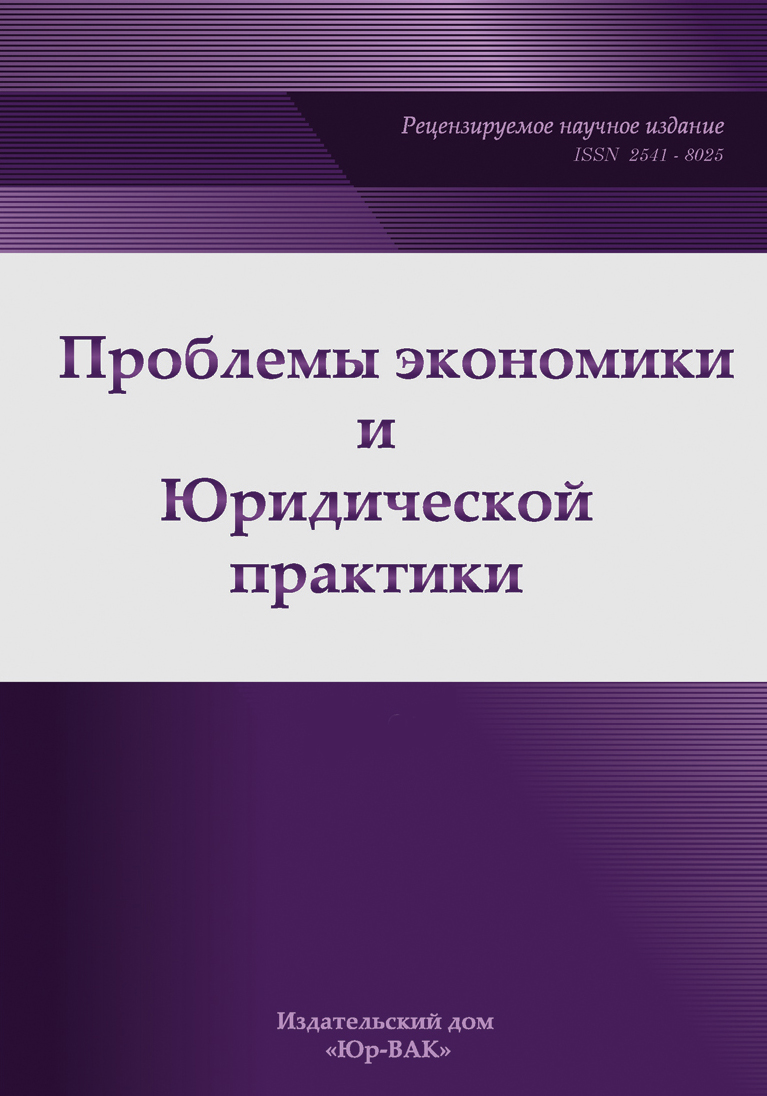Independent Assessment of the Quality of Social Services in the Development of the Social Sphere: Economic and Management Aspects
- Authors: Petrova S.A.1, Grigor'yants G.N.1, Aleksentseva Y.A.1
-
Affiliations:
- Federal State Budgetary Institution «All-Russian Research Institute of Labor» of the Ministry of Labor and Social Protection of the Russian Federation
- Issue: Vol 18, No 6 (2022)
- Pages: 206-212
- Section: Articles
- URL: https://journals.eco-vector.com/2541-8025/article/view/545926
- ID: 545926
Cite item
Abstract
About the authors
Svetlana A. Petrova
Federal State Budgetary Institution «All-Russian Research Institute of Labor» of the Ministry of Labor and Social Protection of the Russian Federation
Email: sa-petrova@vcot.info
Cand. Sci. (Eng.), Associate Professor, Director of the Resource Center for the Development of the Civil Service Moscow, Russian Federation
Galina N. Grigor'yants
Federal State Budgetary Institution «All-Russian Research Institute of Labor» of the Ministry of Labor and Social Protection of the Russian Federation
Email: galina.grigoryants@gmail.com
Cand. Sci. (Econ.), Senior Analyst of the Resource Center for the Development of the Civil Service Moscow, Russian Federation
Yuliana A. Aleksentseva
Federal State Budgetary Institution «All-Russian Research Institute of Labor» of the Ministry of Labor and Social Protection of the Russian Federation
Email: aleksencevayi@vcot.info
Leading Analyst of the Resource Center for the Development of the Civil Service, Cand. Sci. degree seeking applicant Moscow, Russian Federation
References
- Aleksentseva Yu.A. Problems of forming the personnel potential of social organizations/S. A. Petrova, Yu. A. Aleksentseva, I. A. Yasinskaya, A. K. Volodko//Labor Economics. -2021. -T. 8. -№ 8. -p. 823-840.
- Vashakidze G. Provision of public services on the principle of one window»: experience of Georgia-Regional Hub in the field of public service in Astana. Astana, 2016. -URL: https://www.asta-nacivilservicehub.org/uploads/case_studies/RUS/Georgia_case-study_RUS.pdf.
- Grigoryants G.N., Zamaraeva Z.P. Social protection of the population in Russia: formation and development. -M.: Soyuz Publishing House, 2004. -96 p.
- Pine JB, Gilmore JH. The Experience Economy: Work Is Theater & Every Business a Stage. M.: Williams Publishing House; 2005. 304 p.
- Predvoditeleva M.D., Balaeva O.N. Approaches to service quality management: consumer focus//Management in Russia and abroad. 2005. № 2. -URL: http://www.mevriz.ru/articles/2005/2/3758.html.
- Petrova S.A. Independent assessment of the quality of services as a tool for analyzing the achievement of national development goals/S.A. Petrova, G.N. Grigoryants, I.A. Yasinskaya, Yu.A. Aleksentseva//Social and labor research. -2021. -№ 3 (44). -p. 99-114.
- Solganova E.I. Assessment of the quality of service provision: results of sociological research//Bulletin of Chelyabinsk State University. -2019 -№3(425). URL: https://cyberleninka.ru/article/n/otsenka-kachestva-predostavleniya-uslug-rezultaty-sotsiologicheskogo-issledovaniya/viewer.
- Tagoeva R.G. Formation of a mechanism for managing the development of the social services sector. Diss... cand.ekon.nauk: 08.00.05 -TGFEU, Republic of Tajikistan, 2020. -184 p. -http://ddtt.tj/failes/sovet/zashitaTJ/candidates/tagoeva-robiya.pdf
- Yamshchikov A.S. The impact of the quality of social services provided by non-profit organizations on funding allocated from the state budget/A.S. Yamshchikov, E.F. Karabitsina//Economics: yesterday, today, tomorrow. -2021. -V. 11. -№ 6-1. -p. 358-365.
- Balaji B. Service Quality: Approaches, Service Gaps and Causes of Service Quality Problems // Your article library, 2009- URL: http://www.yourarticlelibrary.com/services/ service-quality-approaches-service-gaps-and-causes-of-service-quality-problems/40596 (дата обращения: 27.11.2022).
- Gummesson E. Quality Management in Service Organizations, International Service. 1993. -Текст: непосредственный.
- Olkiewicz, M. Quality Improvement Through Foresight Methodology as a Direction to Increase the Effectiveness of an Organization. Contemporary Economics, Vol. 12, 1, p.69-80, -2018. Текст: электронный -URL: https://papers.ssrn.com/sol3/papers.cfm?abstract_id=3201083 (дата обращения: 27.11.2022).
Supplementary files









